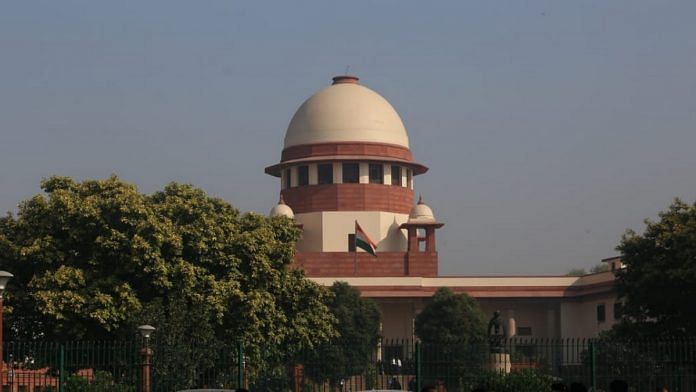New Delhi: The Supreme Court Thursday dismissed a batch of petitions seeking review of its November 9 Ayodhya land dispute case verdict which cleared the way for construction of a Ram Temple at the disputed site.
The top court, which took these review pleas for consideration in-chamber, rejected them after finding no merit.
A five-judge bench headed by Chief Justice S A Bobde and comprising Justices D Y Chandrachud, Ashok Bhushan, S A Nazeer and Sanjeev Khanna considered the review pleas of only those who were parties to the four lawsuits filed initially in the vexatious dispute.
There were 18 review petitions, out of which nine have been filed by parties who were part of the earlier litigation and the other nine were filed by “third parties”.
The apex court refused to entertain nine review pleas filed by those who were not party to the original litigation.
Among the nine “third parties” were 40 rights activists who had jointly moved the top court seeking review of its verdict.
With the rejection of these review petitions, the consequential request of parties for an open court hearing on these pleas also get dismissed.
A 5-judge bench, headed by the then Chief Justice of India Ranjan Gogoi, had in a unanimous verdict on November 9 decreed the entire 2.77 acre disputed land in favour of deity ‘Ram Lalla’ and also directed the Centre to allot a five-acre plot to Sunni Waqf Board for building a mosque in Ayodhya.
On December 2, the first plea seeking review of Ayodhya verdict was filed in the apex court by Maulana Syed Ashhad Rashidi, legal heir of original litigant M Siddiq and also the Uttar Pradesh president of the Jamiat Ulama-e-Hind.
On December 6, six petitions were filed in the apex court seeking review of its November 9 judgement.
On December 9, two more review petitions were filed, one by the Akhil Bharat Hindu Mahasabha and the other by 40 persons, including rights activists.
Maulana Syed Ashhad Rashidi sought review of the verdict on 14 counts and said that “complete justice” could only be done by directing reconstruction of Babri Masjid.
He also sought an interim stay on operation of the verdict in which it had directed the Centre that a trust be formed within three months for construction of the temple at the site.
Akhil Bharat Hindu Mahasabha, which has sought a limited review of the November 9 verdict, moved the court against the direction to allot a five-acre plot to Sunni Waqf Board for building a mosque in Ayodhya.
It also sought deletion of findings declaring the disputed structure as a Mosque.
The review plea filed by 40 persons, including historian Irfan Habib, economist and political commentator Prabhat Patnaik, activists Harsh Mander, Nandini Sundar and John Dayal, have said they are “deeply aggrieved” by the verdict as it “errs in both fact and law”.
It has sought a full bench for hearing the review plea saying it is not merely a title dispute but a “contestation about the core of India’s constitutional morality, and the principles of equal citizenship, secularism, justice, rule of law and fraternity”.
Also read: Indians are not over the British Raj yet. Ayodhya judgment is a thriving example




Review of judgment is a limited provision for correction of patent errors in the judgment, which may be factual or legal errors, such ignoring a relevant provision, relying on wrong provision. It is not an appeal. Some people won’t let the country rest in peace. They use court as a tool for fermenting unrest. This wholesale rejection of review petitions serves them right.